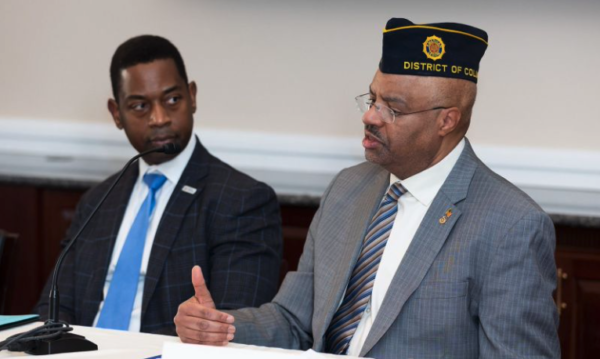
(Photo: American Legion HQ)
The American Legion is advocating for an overhaul of the Department of Defense’s Tuition Assistance, TA, program, for Service Members’ education.
Established to alleviate the financial burden of tuition costs, TA serves as a significant resource for active-duty military personnel across all branches of the Armed Forces. Eligibility for TA extends to members of the Armed Forces, offering assistance for accredited academic degree or certificate programs recognized by the U.S. Department of Education.
Despite its intentions, the current TA program falls short in addressing the financial needs of Service Members. Capped at $4,500 annually, the same amount since 2002, TA fails to keep pace with the escalating costs of higher education, hurting individuals’ ability to attain degrees effectively. The American Legion, represented by Joseph Sharpe, Veterans Employment and Education Director, urged the need for an increase in TA coverage to allow Service Members to pursue educational goals without financial constraints.
The American Legion’s unwavering support for Service Members’ educational pursuits is reflected in Resolution 2016-318, Ensuring the Quality of Servicemember and Veteran Student’s Education at Institutions of Higher Education, which advocates for legislative and administrative reforms to support not only the TA program but also other education benefits, including the G.I. Bill and Higher Education Title IV funding.
“We want to see an increase in the amount of money TA covered: $4,500 a year is not enough to help individuals really obtain a degree,” said Sharpe.
Sharpe’s sentiments echoed those of various individuals, including Dr. Mark Milliron, President and CEO of National University, and Dr. Gregory Fowler, President of the University of Maryland Global Campus. In a collaborative effort with education panelists like the Presidents Forum, these experts convened at a Capitol Hill policy briefing to address the shortcomings of the TA program and explore avenues for improvement.
A concern expressed by the Legion and educational institutions was the program’s failure to keep up with rising tuition fees, leading many universities to withdraw from the program due to its lack of cost-effectiveness. Moreover, there were additional concerns regarding the accountability of institutions receiving TA funds. Sharpe wanted to see increased program outcomes and metrics for both schools and Service Members. Additionally, he called for clarity on the program’s effectiveness in recruitment, readiness, retention, and return on investment. Sharpe stressed the need to meet the evolving needs of Service Members and their families, indicating the imperative for legislative action to effect meaningful change.












